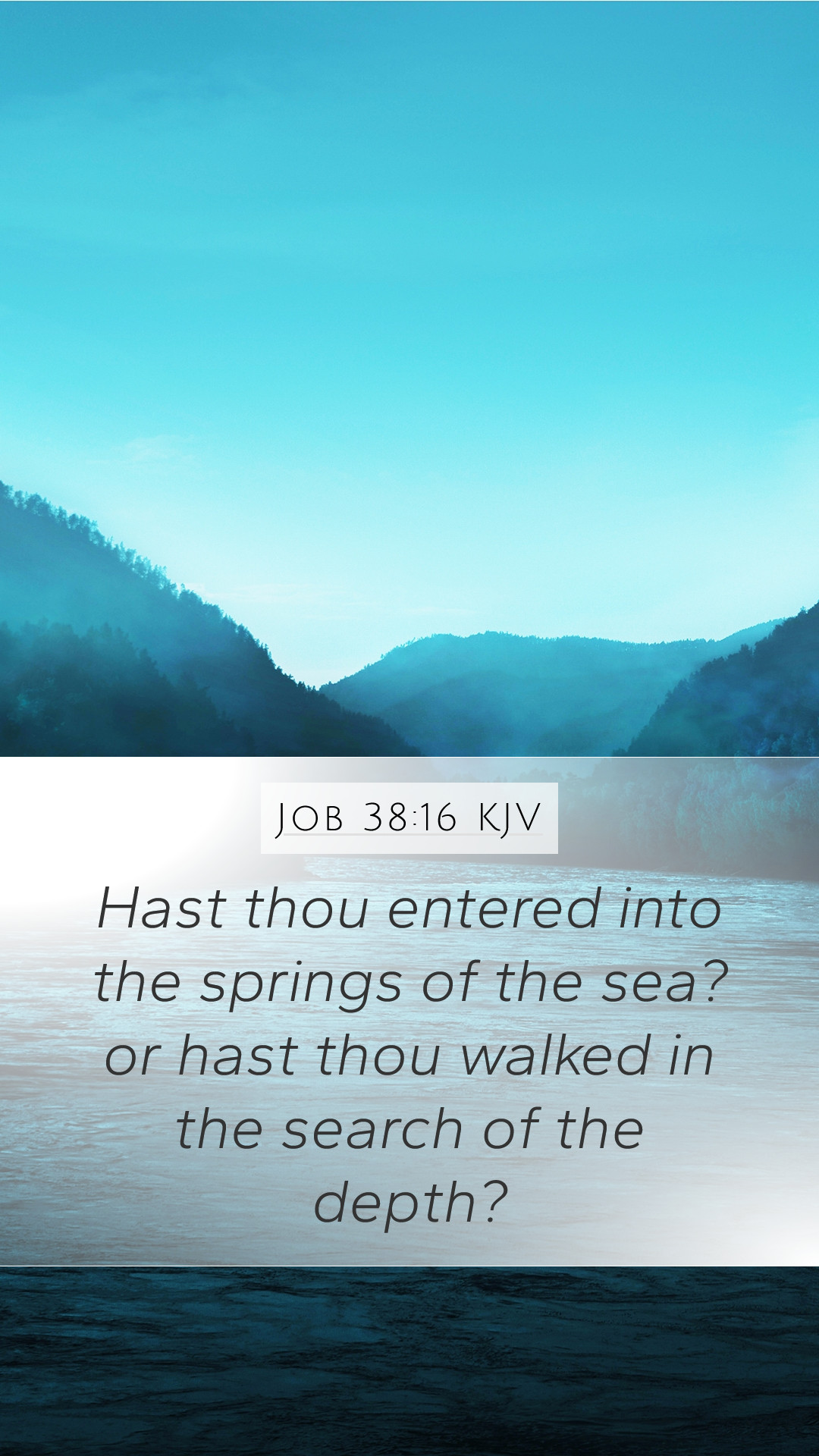Bible Verse Commentary: Job 38:16
The verse Job 38:16 states:
"Hast thou entered into the springs of the sea? or hast thou walked in the search of the depth?"
This verse appears as God speaks to Job, questioning him about the mysteries of the natural world, emphasizing God's supreme wisdom and power in contrast to human limitations. Below are insights from various public domain commentaries:
Meaning and Interpretations
Matthew Henry's Commentary
Matthew Henry emphasizes that God's inquiry showcases His omniscience and sovereignty over creation. The 'springs of the sea' represent the depths and hidden places that are beyond human exploration and understanding. This challenges Job, who, in his suffering, has questioned God's ways, reminding him of the vastness of God's creation and the limitations of human wisdom.
Albert Barnes' Notes
Albert Barnes interprets this verse as a rhetorical question posed by God to Job, highlighting the intricate design of the earth and the universe that humans cannot fully comprehend. Barnes states that this question serves to demonstrate God's unmatched power in creation, which includes the depths of the oceans, emphasizing that Job, like all of humanity, is limited in understanding God's works.
Adam Clarke's Commentary
Adam Clarke notes that 'the springs of the sea' are a metaphor for mysteries that lie deep within creation, which Job cannot fathom. Clarke reflects on how much there is to discover within creation that remains hidden from human sight and experience. He asserts that such questions from God serve to humble Job and redirect his focus towards God's greatness and the intricacies of His design.
Insights on Understanding Scripture
Job 38:16 invites readers to deeply consider the nature of the universe and God's role as the Creator. This passage can be viewed as part of the greater discourse in the Book of Job, where Job grapples with suffering and the divine justice of God. The verse is a profound reminder of the limitations in human understanding and the vastness of God's creation.
- Theological Reflection: The questioning by God signifies that He is in control, capable of orchestrating all of creation's complexities.
- Personal Application: Believers can apply this verse by submitting to God's wisdom in their lives, especially during hardships.
- Biblical Wisdom: Recognizing that human understanding is finite encourages a sense of humility and trust in God's plan.
Cross-References
- Psalm 104:24-25: Discusses the wonders of creation and the wisdom of God in making them.
- Proverbs 3:5-6: Encourages trust in the Lord rather than relying solely on one's own understanding.
- Isaiah 40:12: Questions who has measured the waters or marked off the heavens, pointing to God's omnipotence.
Conclusion
Job 38:16 stands as a significant verse for understanding the majesty of God in relation to creation. It invites both individuals and Bible study groups to explore the depths of scripture through the lens of God's unmatched wisdom. By studying this verse, we gain insights into the character of God and the importance of trust in His overarching plan.
Further Study Suggestions
For those seeking bible verse explanations or comprehensive bible study insights, consider:
- Engaging in online bible study or bible study groups for collective exploration.
- Utilizing bible study tools such as concordances or online resources.
- Exploring bible study lessons that focus on God's creation and sovereignty.
- Participating in bible study plans that include a thematic study of the Book of Job.


